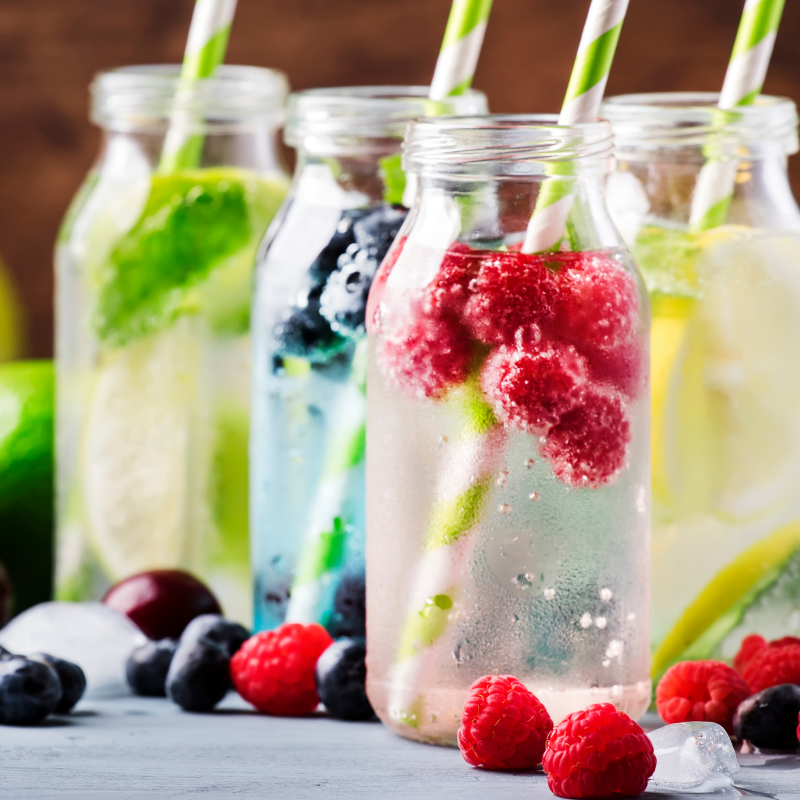If you suffer from migraines, you know how much stress can contribute to certain attacks. Of course illness can add to the stress of everyday life, so it makes sense, that the stronger our immune systems are in resisting illness, the less stress we will be exposed to, as well.
Therefore eating a diet that contains foods that can reduce stress and enhance our immune systems, will not only increase our over-all wellness levels, but may also reduce the number and intensity of migraines that occur. (and possibly other types of headaches too.)
When under stress we seek “comfort” and many people see comfort in foods that have high levels of carbs. Carbs increase the synthesis of serotonin, a feel good neurotransmitter. But carbs can also raise blood sugar quickly. So instead of simple carbs that are found in most desserts, switch to more complex carb food sources, like “oatmeal” or “whole grain breads” which increase serotonin levels but don’t spike blood sugar levels.
Also when we are under stress, stress-related hormones like cortisol and adrenaline can increase. Magnesium containing foods like spinach and fish like salmon, which are high in omega-3 fatty acids can keep stress hormones under control. Some research indicates that black tea and pistachio nuts can reduce stress-hormones and make you feel calmer. Coffee, on the other hand, can increase cortisol levels.
Nuts like almonds and walnuts contain B-Vitamins (which are stress vitamins) and vitamin E, which bolsters the immune system. 1/4 to 1/2 cup per day is sufficient.
Oranges can both reduce stress hormone levels as well as enhance the immune system due to their vitamin C content. I would also suggest a vitamin C supplement containing 500-1000mg a day.
Vitamin A significantly supports the immune system. Foods containing Vitamin A are:
Apricots, asparagus, beet greens, broccoli, carrots, cantaloupe, collards. A glass of carrot juice 3 times a week would assure vitamin A sufficiency. Plus this vitamin protects eye ight, particularly at night.
Finally, dehydration and constipation, stress the body and threaten the immune system, so water and fiber are crucial parts of your diet.
Please be sure to drink plenty of water every day, especially when you start adding fibrous foods to your diet. Consuming fiber without water can actually cause constipation rather than prevent it. So here are some examples of high fiber foods:

- Baked beans, kidney beans, split peas, dried limas, garbanzos, pinto beans and black beans
- Bran cereals – Bran Buds and All-Bran
- Fresh or frozen lima beans, both Fordhook and baby lima
- Fresh or frozen green peas
- Dried fruit, topped by figs, apricots and dates
- Raspberries, blackberries and strawberries
- Sweet corn, whether on the cob or cut off in kernels
- Whole-wheat and other whole-grain cereal products. Rye, oats, buckwheat and stone-ground cornmeal are all high in fiber. Bread, pastas, pizzas, pancakes and muffins made with whole-grain flours.
- Broccoli-very high in fiber!
- Baked potato with the skin (The skin when crisp is the best part for fiber.) Mashed and boiled potatoes are good too, but not French fries, which contain a high percentage of fat
- Green snap beans, pole beans, and broad beans
- Plums, pears, and apples
- Raisins and prunes
- Greens including spinach, beet greens, kale, collards, Swiss chard and turnip greens
- Nuts, especially almonds, Brazil nuts, peanuts, and walnuts
- Cherries
- Bananas
- Carrots
- Coconuts
- Brussels sprouts
- Flax seed, which can be added to smoothies or sprinkled on your fruit or on yogurt.
Try to work some of the foods from each category into your daily diet. Of course, don’t take any of these recommended foods, if you feel that they trigger your migraines. This helpful guide is just a guide, not a rule book. Your experience is the truth that you need to follow.
For those of you who suffer with chronic migraines, using these food choices to help prevent your migraines is a wise decision. So is the decision to prevent your migraines rather than spend a lifetime taking pills to just treat the pain that always comes back with your next migraine.
To The Best of Health,
Curt Hendrix, M.S., C.C.N., C.N.S


